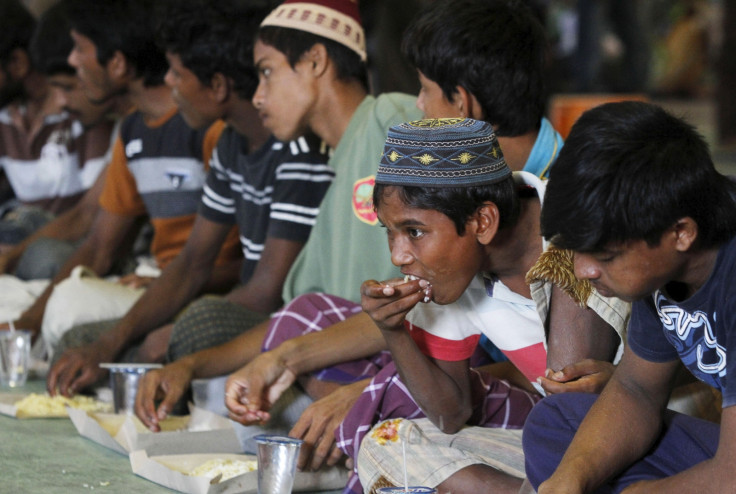Rohingya Muslims: Boats with 1,600 migrants land in Malaysia and Indonesia

Boats carrying a total of 1,600 Rohingya and Bangladeshi migrants have arrived in Malaysia and Indonesia hinting at a new wave of asylum-seekers in south-east Asia.
More than 1,000 Rohingya Muslims, considered the world's most persecuted ethnic minority by the UN, landed on a beach in the northern resort island of Langkawi in Malaysia. The migrants, who arrived in three boats, have all been detained for processing.
Steve Hamilton, deputy chief of mission at the IOM in Jakarta, told AP that some passengers jumped into the water and swam, warning that thousands more are believed to be stranded at sea.
Other boats carrying nearly 600 Bangladeshis and Rohingyas came ashore in western Indonesia, after captains and smugglers abandoned the ships. They have been placed in a sports stadium in Lhoksukon, the capital of North Aceh District, to be questioned.
The UN refugee agency, UNHCR, estimated that around 25,000 Rohingyas and Bangladeshis boarded people smugglers' boats since the beginning of the year - twice as many in the same period of 2014.
After they leave their home countries, migrants are held in open pens in Thailand's jungle camps as brokers collect ransoms of thousands of dollars from family and friends. Those who pay, continue their journey to Malaysia and Indonesia, those who can't are killed or left to die.
Earlier in May, Thai police discovered 24 bodies from shallow graves in the mountains of southern Thailand who are believed to be the victims of smugglers.
Rohingya Muslims are stateless and live in segregated conditions in the western Rakhine state, where clashes with Buddhists in 2012 left about 200 people dead and tens of thousands displaced. They have been viewed as unwelcome migrants from Bangladesh during the last century by the Myanmar government and local Burmese.
Violence against Myanmar's Muslims has intensified over the past three years, incited by extremist monks and the virulent anti-Muslim '969' campaign, which espouses hate and urges Buddhists to boycott Muslim businesses.
Those attacks have triggered an exodus of around 100,000 people, according to Chris Lewa, director of the Arakan Project. An estimated 7,000 to 8,000 Rohingya are now being held in large ships in the Malacca Straits and international waters. The recent crackdown on human trafficking in Thailand and Malaysia has prevented brokers from bringing them to land.
© Copyright IBTimes 2025. All rights reserved.




















